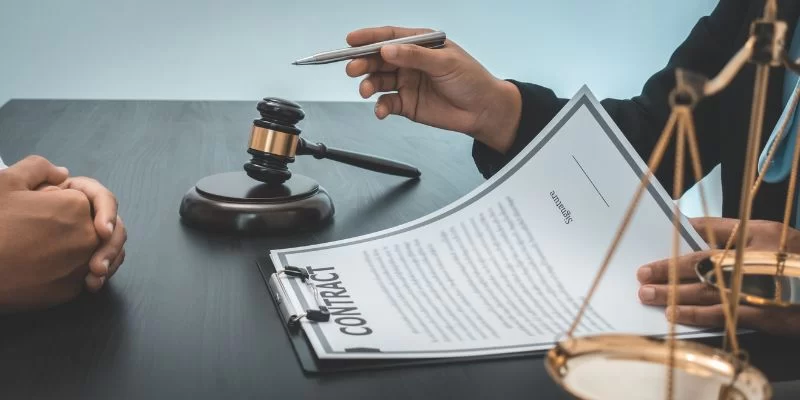- Civil Law and Its Role in Personal Disputes
- The Legal Process in Resolving Personal Disputes
- Methods of Dispute Resolution
- Real-World Examples and Case Studies
- Professional Advice and Where to Find Help
1. Civil Law and Its Role in Personal Disputes
Civil law is the backbone of legal systems worldwide when it comes to addressing conflicts between individuals or entities that do not involve criminal accusations. At its core, civil law governs personal disputes such as contract disagreements, property claims, family matters, and torts like negligence or defamation. Understanding civil law is essential because it provides a structured framework within which these disputes can be fairly resolved.
Unlike criminal law, where the state prosecutes a person for breaking laws, civil law is primarily concerned with compensating the injured party or enforcing agreements. For example, if two neighbors dispute property boundaries or if a person sues another for breach of contract, civil law and the legal process form the pathway to justice.
Because these disputes often involve personal rights, assets, and relationships, resolving them efficiently and justly is critical for social harmony. The role of civil law is to balance these interests through a legal process that respects fairness and the rule of law.
1.1 The Foundation of Civil Law
Civil law draws from statutes, codes, and precedent to establish clear rules for resolving conflicts. This clarity helps individuals understand their rights and obligations, encouraging dispute resolution before escalation. When informal negotiations fail, the civil legal system becomes the forum for settlement.
1.2 Why Understanding Civil Law Matters
Many people overlook the importance of civil law until they face a personal dispute. Being aware of how the legal system works can empower individuals to protect their interests proactively and avoid costly, lengthy conflicts. It also promotes fairness by ensuring that each party has access to due process and an opportunity to be heard.
2. The Legal Process in Resolving Personal Disputes
The legal process for resolving personal disputes typically follows a structured pathway designed to ensure fairness and efficiency. This process usually begins with identifying the issue and attempting informal resolution, progressing to formal legal steps if necessary.
2.1 Initiating a Civil Claim
When a dispute cannot be resolved amicably, the injured party may file a civil lawsuit. This step involves submitting a complaint to a court outlining the claims and the desired remedy. For example, someone injured by another’s negligence might file a lawsuit demanding compensation for damages.
2.2 Discovery and Evidence Gathering
Once a case is filed, both parties engage in discovery, a phase where relevant information and evidence are exchanged. This stage is crucial as it clarifies facts and often motivates parties to seek settlement before trial.
2.3 Trial and Judgment
If the dispute proceeds to trial, both sides present their case before a judge or jury. After hearing the arguments and reviewing evidence, a decision is rendered. The judgment can include compensation, injunctions, or other remedies depending on the nature of the dispute.
2.4 Appeals and Enforcement
Either party may appeal the judgment if they believe legal errors influenced the decision. Once the final judgment is made, enforcement ensures compliance, such as collecting awarded damages or executing court orders.
3. Methods of Dispute Resolution
Resolving personal disputes does not always require court trials. Various alternative methods offer faster, less adversarial solutions, often preserving relationships and reducing costs.
3.1 Mediation
Mediation involves a neutral third party who facilitates communication between disputants to help them reach a mutually acceptable agreement. This process is voluntary and confidential, making it ideal for family disputes or contract disagreements.
3.2 Arbitration
Arbitration is a more formal process where an arbitrator hears evidence and makes a binding decision. It resembles a private trial and is often faster and less expensive than court litigation. Many contracts include arbitration clauses requiring disputes to be resolved this way.
3.3 Negotiation and Settlement
Negotiation is the simplest form of dispute resolution, where parties communicate directly to resolve their issues. Settlements can occur at any stage of the legal process, often saving time and expense.
4. Real-World Examples and Case Studies
To illustrate how civil law and its processes work in practice, consider the following examples:
4.1 Property Dispute Between Neighbors
Two neighbors disagreed over a fence location that allegedly encroached on one party's land. Initially, they attempted friendly negotiations, but when that failed, they sought mediation. Through facilitated dialogue, they agreed on a new boundary line and shared fence maintenance costs, avoiding costly litigation.
4.2 Breach of Contract Case
A small business sued a supplier for failing to deliver goods as promised. The case went to court, where discovery revealed delays caused by unforeseen supplier issues. The judge ruled for partial damages and ordered the supplier to fulfill the remainder of the contract, balancing fairness for both parties.
4.3 Family Law Dispute
In a custody dispute, the parents chose arbitration over a public court trial to resolve parenting time and financial support. The arbitrator’s decision respected both parents’ rights and prioritized the child's welfare, demonstrating how alternative dispute resolution can be effective in sensitive cases.
5. Professional Advice and Where to Find Help
Engaging with a knowledgeable legal professional is often crucial for navigating civil law and the legal process effectively. Lawyers specialized in personal disputes bring expertise that can clarify complex issues, protect your rights, and guide you through every stage.
If you are facing a civil dispute, consulting Fred Miller Lawyer can provide tailored advice and practical solutions suited to your case. Their experienced team offers comprehensive services, from mediation to full litigation, ensuring you receive the most appropriate support.
Understanding your options and having expert guidance can transform a stressful dispute into a manageable legal matter, helping you achieve the best possible outcome.


 letnick law firm plc
letnick law firm plc carl spector attorney
carl spector attorney myers brier and kelly
myers brier and kelly mercaldo law
mercaldo law bright law pllc
bright law pllc linda kerns law
linda kerns law